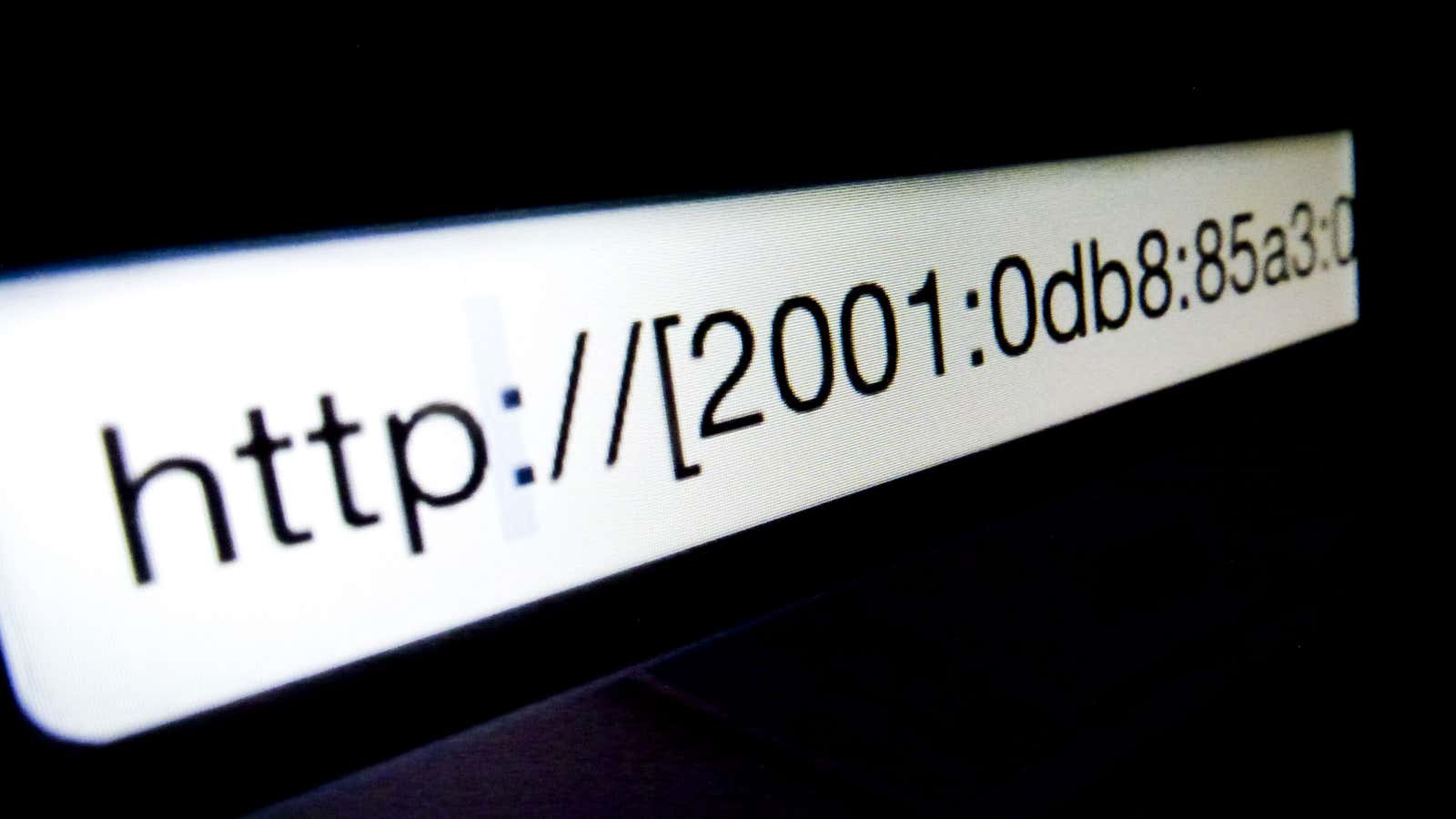A new paper shines some light on the “next generation internet” China is building—and it’s far ahead of anything any other country has at the moment. The improvements aren’t just superficial faster broadband fluff either. They are deeply important changes to the very backbone of the system.
The first is something governments all over the world are addressing, that the internet is rapidly running out of space. On the present system, called IPv4, every domain you go to—say, qz.com—actually takes you to one of several address that look something like this: 192.168.0.1. That, in turn, is read by computers as four separate eight-bit components. The 4.3 billion spots available in these 32 bits are inefficiently distributed, badly assigned, and quickly becoming redundant.
What China is implementing is IPv6, which is four times as long and has 7,906,976,744,186,046,511,627,906,976,744 times as much capacity. They had little choice. The gap between the number of addresses allotted to China and the number of users was already immense. Lots of other countries are working on implementing it, too, but China is already using it for some things, such as streaming high-definition TV. China’s IPv6 system is expected to be operational by 2015. The rest of the world is far, far behind.
The other aspect of China’s awesome new internet is a security system called Source Address Validation Architecture. Without getting too technical, it does pretty much what it says on the tin: SAVA puts in place checks to build up a list of trusted addresses. Then it acts as a bouncer, only letting an address connect to the network if it’s on the list.
The paper was published this month in the Philosophical Transactions of the Royal Society, the oldest scientific journal in the world.
The paradox is that while the backbone of China’s internet is years ahead of the rest of the world, its citizens must still operate under heavy censorship and a restricted, largely domestic online world. That may give some cause for schadenfreude, but it is hardly a reason to celebrate.
Correction: This item originally said the paper was first published in 2008. That has been corrected.




